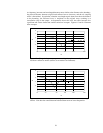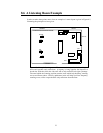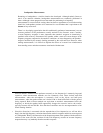
36
9.2 Rationale
There is an old saying, "There's no such thing as a free lunch." There are many trade-offs in
speaker design, as in almost any area one can think of. In this case, the trade off is between
transient response and anechoic frequency response (the speaker's frequency response in an
anechoic chamber). Almost all manufacturers have chosen to sacrifice transient response for
improved anechoic frequency response.
At Avalon Acoustics, we have chosen to pursue a goal of complete freedom from resonances
and stored energy to ensure transient accuracy. We feel that the resulting gain in areas not
traditionally measured results in audibly superior overall performance.
Anechoic vs. In-Room Frequency Response
It must be remembered that very little listening actually takes place in anechoic chambers.
Placement of the speakers in a real-world listening room will boost the bass response of the
speaker, as explained in Section 8, Room Acoustics and Speaker Position, beginning on page
21. Since a loudspeaker with perfectly flat anechoic frequency response will exhibit a
low-frequency boost in a normal listening environment, a loudspeaker with a gradual bass
roll-off (in an anechoic chamber) can exhibit more accurate in-room frequency response.
Avalon loudspeakers are carefully designed taking these factors into account. When placed in
a variety of representative positions in the room, Avalon loudspeakers will produce deep,
accurate, and unexaggerated bass response, with complete freedom from stored resonant
energy.


















